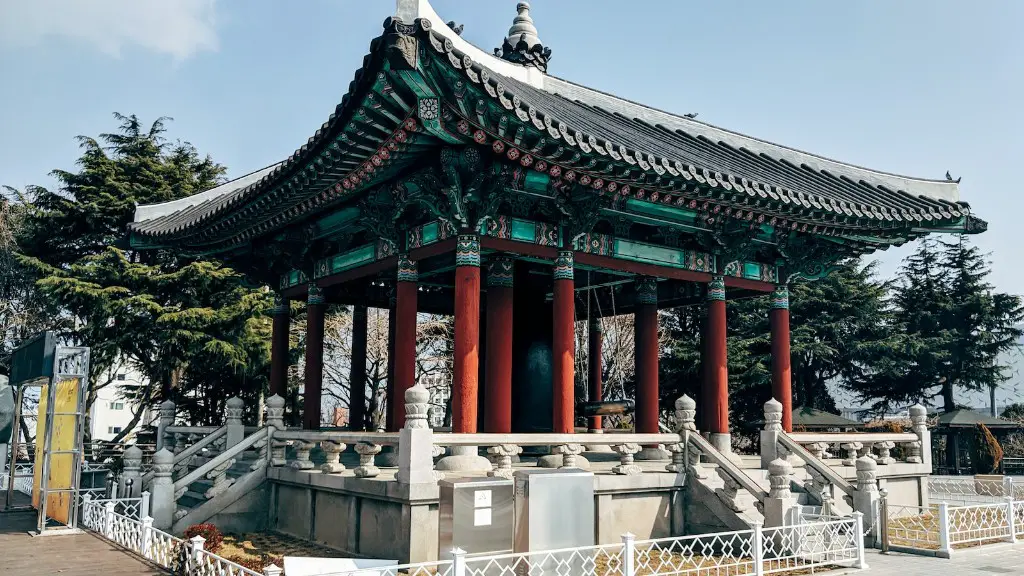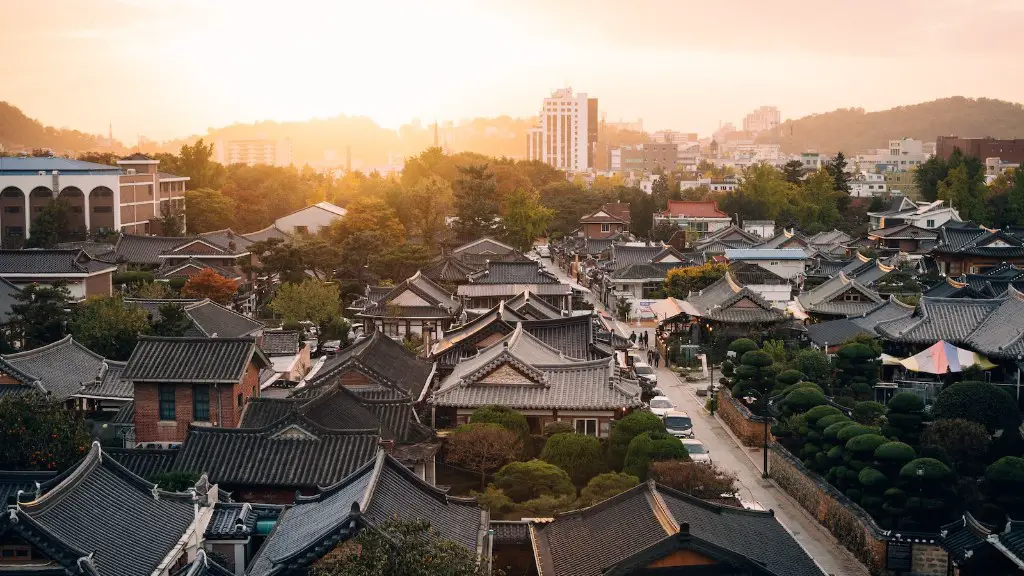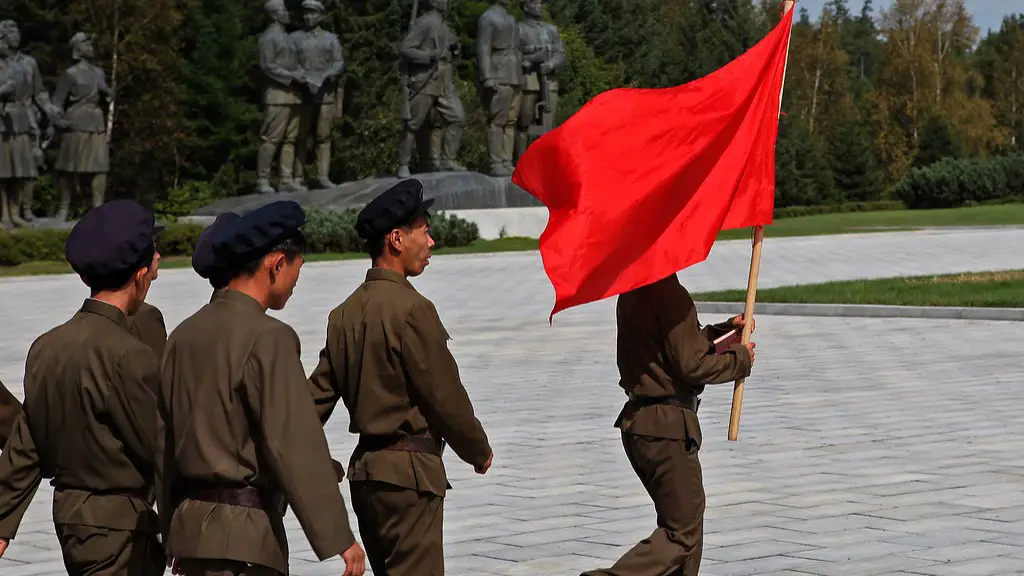Formation of North Korea
The foundations of the Republic of North Korea were established in 1948 after the end of the Second World War. Prior to the war, the region had been occupied by the Japanese, but was liberated when it emerged as the victor of the World War. The Soviet Union occupied northern Korea, while the United States was placed in strategic control of the south. As the Cold War escalated, North Korea began to distance itself from the capitalist south and embrace the communist ideology. This resulted in the establishment of the Democratic People’s Republic of Korea, or the DPRK. The DPRK was the product of the ideological differences between the United States and the Soviet Union, as well as a culmination of the ever-present tension between the two superpowers.
North Korean Ideology
North Korea is an entirely different case from its southern counterpart, the Republic of South Korea. It has embraced a deeply authoritarian and militant form of Communism, which has triggered numerous regional and international sanctions. According to their official Juche ideology, North Korea is the only true Communist nation in the world, and the only one that deserves legitimacy. Building upon this, the North Korean government has actively rejected the capitalist ideologies of the West and its regional neighbors, oftentimes resorting to hostile tactics to express their discontent. There has also been a heavy focus on Korean jingoism, with the philosophy that the Korean race is unique and should be kept distinct from other Asian nations.
North Korea and the US
For decades, North Korea has been a vocal critic of the policies of the United States and its allies. This deep-seated animosity can be traced back to the Korean War of 1950-53, which saw the North pitted against US forces and its regional allies in a brutal conflict. The war saw North Korea suffer, not just from the physical loss of infrastructure and casualties, but from US-led sanctions which starved the North and created a famine which killed millions. In recent years, the North has engaged in a number of provocative acts such as nuclear tests and ballistic missile tests, drawing the ire of the United States, who views the nation as one of the greatest threats to world peace.
Motivations of North Korea
Given the history between the two countries, it is unsurprising that North Korea is unwilling to compromise and take a more conciliatory stance towards the US. For North Korea, its actions are motivated by a combination of security, internal politics and its desire for respect and recognition. On the security front, North Korea is highly aware of its position in a region which also features powerful US allies, such as South Korea, Japan, and even Taiwan. As such, North Korea feels the need to project strength and demonstrate that it is capable of defending itself against external threats. Additionally, the Korean War still lingers in the minds of the North Korean population and heavy anti-US rhetoric is often used to stir nationalist and patriotic sentiments. Lastly, North Korea seeks recognition and respect on the international stage, and views its recent saber-rattling as a way to be taken seriously by the US and other powers.
North Korean Foreign Policy
As a result, North Korea has adopted a foreign policy of defiance towards the US and its allies, engaging in activities which are actively designed to irritate them. In recent years, the North has undertaken a series of provocative actions such as ballistic missile tests, nuclear tests, and even cyber attacks. At the same time, the North has pursued a policy of rapprochement with its key benefactors, such as China and Russia, seeking to further isolate itself from the US and its military. Additionally, the North has utilized its international influence to pressure the US into taking a more conciliatory stance towards it, such as reducing or removing sanctions.
North Korea’s Aspirations For The Future
Ultimately, North Korea is emboldened by its recent successes in the international arena, and feels optimistic about its future. The country is well aware that it is now accepted to a certain degree on the international stage, and as such, it aims to use its newfound clout to further its interests and challenge the status-quo. North Korea’s focus is now on ensuring its economic prosperity, as well as its political and military autonomy. In order to achieve this, the North has been actively seeking external assistance and diplomatic support, while also attempting to reduce its own reliance on the US and its allies. North Korea is well aware of the advantages and disadvantages of its situation, and is cautiously attempting to navigate the political and economic landscape without arousing the ire of major powers.
North Korea’s Relationship With Neighboring Countries
North Korea has traditionally been hostile to its neighbors, particularly those with whom it has had long-standing disputes. South Korea, which was considered an enemy state by the North until 2018, is one such example. An uneasy truce exists between the two nations, with a focus on improving diplomatic communications and potentially reunifying the peninsula. North Korea’s most important ally is China, which provides substantial military, economic and political assistance. Beijing is an important buffer for the North and its relationship with the US, and its support is seen as a lifeline for the isolated nation. North Korea also has strained relations with Japan, which still harbors grievances over the colonial era.
International Sanctions
Since North Korea has been so uncooperative in the international arena, the US and its allies have imposed a number of sanctions with the intention of coercing the North into embracing a more conciliatory stance. These sanctions are targeted towards North Korea’s political and economic elites, with the goal of forcing them to reconsider their current course of action. These sanctions include asset freezes, trade bans, travel restrictions and targeted financial sanctions, which effectively limit the North’s ability to function as a normal nation. The US and its allies hope that economic pressure will compel the North to compromise and embrace a more sensible foreign policy.
Conclusion
Ultimately, North Korea’s anger towards the US and its allies is rooted deeply in the nation’s history and ideology. However, recent developments have enabled the North to act with greater confidence, and this has resulted in a more aggressive foreign policy. The North is aware of its position in the international arena, and is cautious in its approach, though it has not been afraid to take drastic and provocative actions when necessary. North Korea’s actions have been seen as a threat by the US and its allies, who have responded with heavy sanctions and military maneuvers. In the future, it is uncertain what the North’s final stance towards the US and the world will be, though it is clear that the nation is determined and willing to stand up for its own interests.


